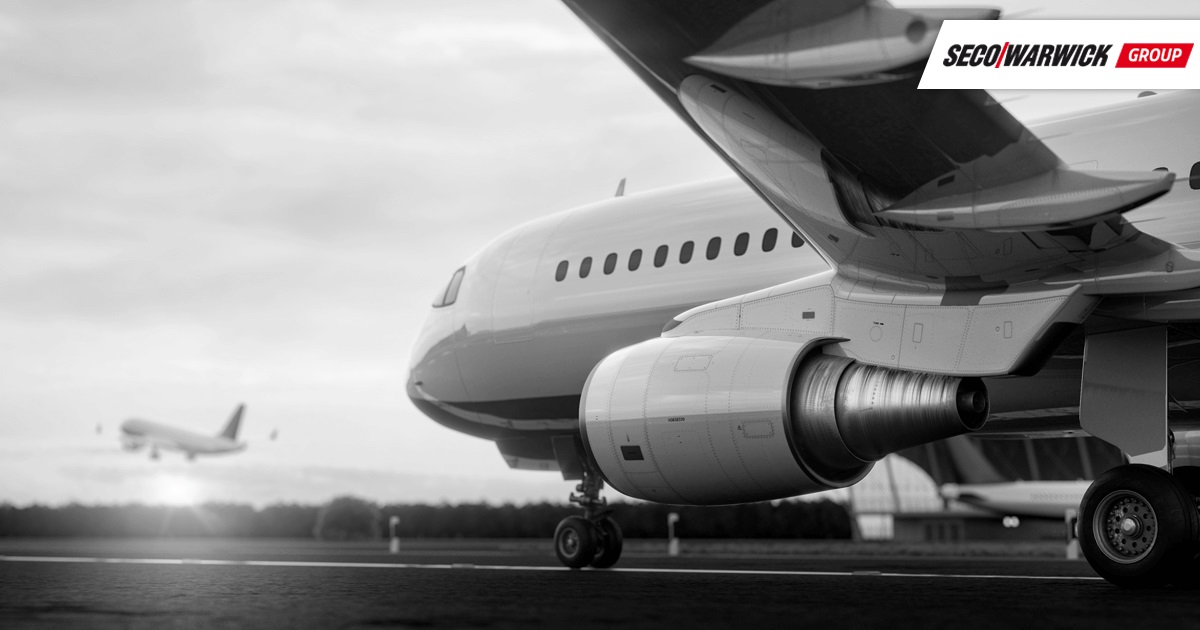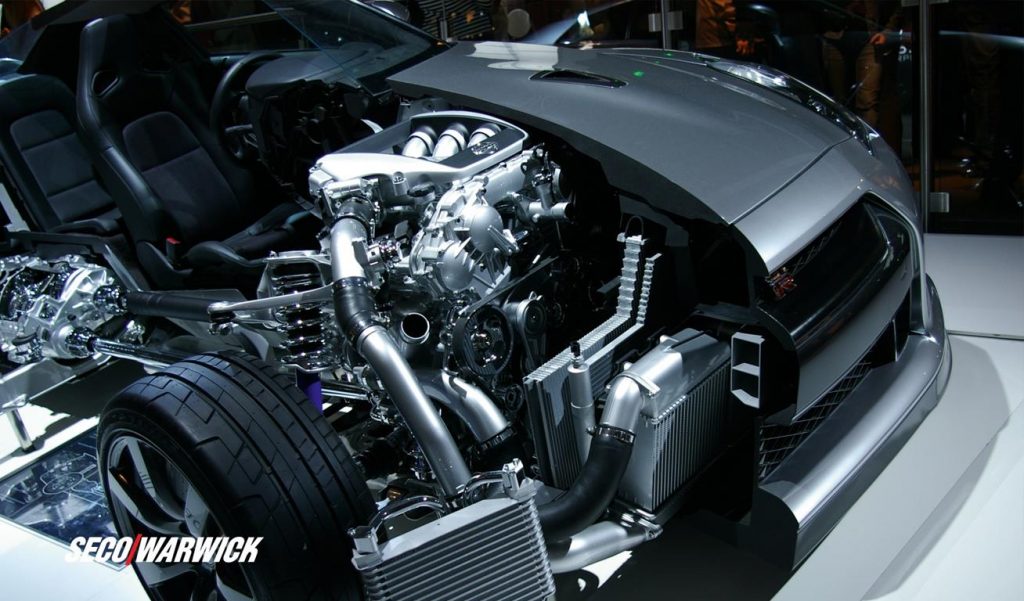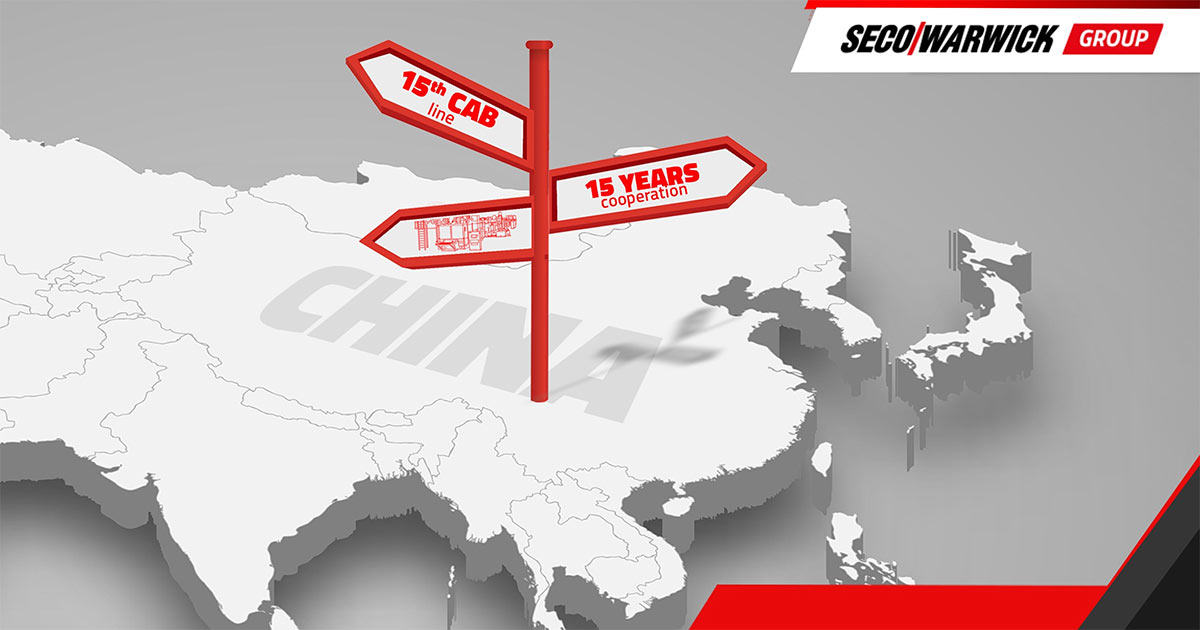Over the last decade, Poland has become an important base to produce high-quality and state-of-the-art products in Europe.

The sky is not the limit for SECO/WARWICK technologies
The aviation market is a very dynamically developing sector, strongly correlated with the global economic situation, currently in the period of its greatest boom. Airports in European cities are reaching capacity limits, passenger numbers are continuously increasing and airlines are launching new routes.
Market needs are growing. In order to satisfy them, more and more companies in the aviation industry acquire new production lines, technologies and service & repair centers for aircraft parts. Among them are Lufthansa Technik and GE Aviation, companies that at the end of September 2019 officially opened the XEOS Aircraft Engine Service and Repair Centre in Środa Śląska.
Flying high and driving fast
Aviation is not the only sector. Central Europe, i.e. Poland, Slovakia, and the Czech Republic, together host the largest international automotive companies.
Both aviation and automotive are sectors which, like medical and energy sectors, require the use of state-of-the-art solutions and technologies. This also applies to the processes of changing the mechanical and plastic properties of materials used in the production of automotive, aviation and many other parts. This is with one goal in mind – to achieve durable, safe, highly-resilient products, often used in extreme conditions (open-pit mines, space, etc.)
Hot processes 4.0
In order for these parts (such as: aircraft engine blades, heat exchangers in aircraft and cars, jet engine parts, turbine blades, aluminum coatings, undercarriage, brakes) to be able to work in difficult conditions, they must be subject to many different processes in terms of the heat treatment of metals. It consists of the appropriate heating, soaking and cooling of the elements (up to a given temperature and at a given speed) so that the alloys obtain such properties that their mechanical and plastic properties are modified by changing their structure. The furnaces that are used in these processes are often advanced devices, equipped with smart tools of the process control system, fully automated and operated with the use of mobile devices.
Europe is leading the heat treatment industry
Manufacturers of such furnaces supply their solutions to key players in the global automotive, aerospace, chemical, nuclear and all other industries that use the heat treatment processes. Among them, there is a Polish company with a global presence – SECO/WARWICK Group, one of the five largest global manufacturers of furnaces, belonging the elite group of Hidden Champions, i.e. companies that, due to their specialist portfolio, are not widely known to the public. When it comes to SECO/WARWICK customers, 70% of them come from demanding industries, represented by entities and brands that are recognizable around the world such as: Boeing, GM, Audi, Ferrari, Ford, Jaguar, Maserati.
Electrifying investments
In terms of production development, Poland is not slowing down. Therefore, there is no wonder that it is an attractive region for foreign investors. German’s Mercedes-Benz Cars is building a factory of electric batteries in Poland. By 2022, Mercedes intends to make its entire portfolio electrified, by offering customers different versions of electric vehicles in each segment. Batteries for these cars will be produced, among others, in the newly built factory in Poland, which will become part of the global network of producing electric batteries.
“The idea that the future belongs to electric vehicles is a hot global topic nowadays. The question is not if but when e-mobility will spread globally and what it means for automotive parts manufacturers who look for new technologies to meet the changing needs of the automotive market. In order for the vehicles of the future to be designed in accordance with the latest standards, it is necessary to know the market, its trends and the expectations of automotive manufacturers, combined with an understanding of the new technologies used and with the readiness to deliver proven solutions,” said Sławomir Woźniak, CEO of SECO/WARWICK.
According to the Polish Investment and Trade Agency (PAIH), German investors, just behind the Americans, choose Poland most often and the sectors receiving investments are mainly e-mobility, business services, projects related to business outsourcing and service centers for big corporations.
Polish engineering solutions mean huge savings for the automotive industry
The fact that the quality needs of the automotive market are growing is beyond any doubt. On the other hand, current manufacturers of automotive components also use solutions that will efficiently reduce production costs. One of the sources of undesirable costs in the production process is unforeseen hardening deformations, which must be rectified later. As it turns out, hardening deformation correction is one of the most expensive processes in the production of gearbox components.
According to the study on this subject performed by the Bremen Institut fur Werkstofftechnik in 1995, the costs of corrections were around 850 million Euro a year in the German automotive and transmission industry alone and one billion Euro a year in the bearing industry. Since then, the production has grown but the problem remains. In 2015, around 90 million cars were manufactured, comprising billions of parts that could have been heat-treated with the UCM – 4D Quench.
As a result, according to SECO/WARWICK’s estimates, factories nowadays spend around 20 billion Euro a year just rectifying deformations caused by the heat treatment process.
The need to find an alternative to conventional technologies that have difficulty in meeting the current quality specifications in the industry, in line with the established production practices and environmental regulations, has become more important than ever. At the right time, the help came from the Polish engineers who developed the award-winning UniCase Master 4D Quench system, minimising deformations and demonstrating a higher repeatability of the results over the entire batch when compared to conventional methods. This in turn brings a significant reduction in the cost of finishing. The experience gathered from processes with different parts confirms the perfect precision and repeatability of the results and the reduction of deformation to such an extent that some finishing operations can be completely avoided. An additional advantage consists in the fact that it does not require any special rooms, so-called ‘hardening shops’ because the equipment has no impact on the environment whatsoever – it is completely neutral for the environment. It can also be easily installed as part of an automated production line.
Development is Poland’s main focus
In 2018, Poland was reclassified from developing countries to the prestigious group of developed markets. It is ranked among the 25 most-developed economies in the world, including Germany, France, Japan and the USA. It is the first country to be included in this list from Central and Eastern Europe as well as being the first one in ten years to change its status in the FTSE Russell list and to be included as one of the developed markets.




